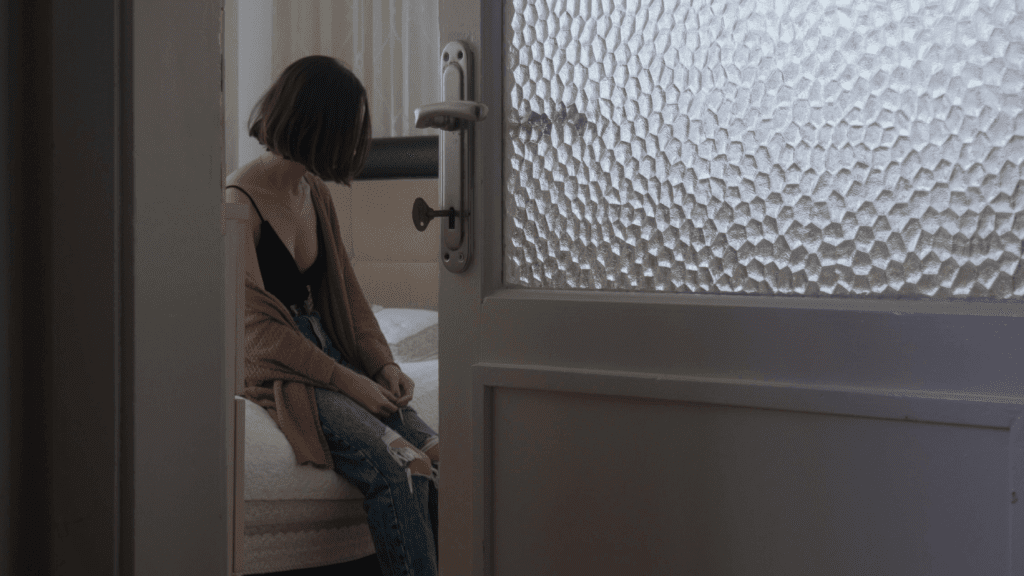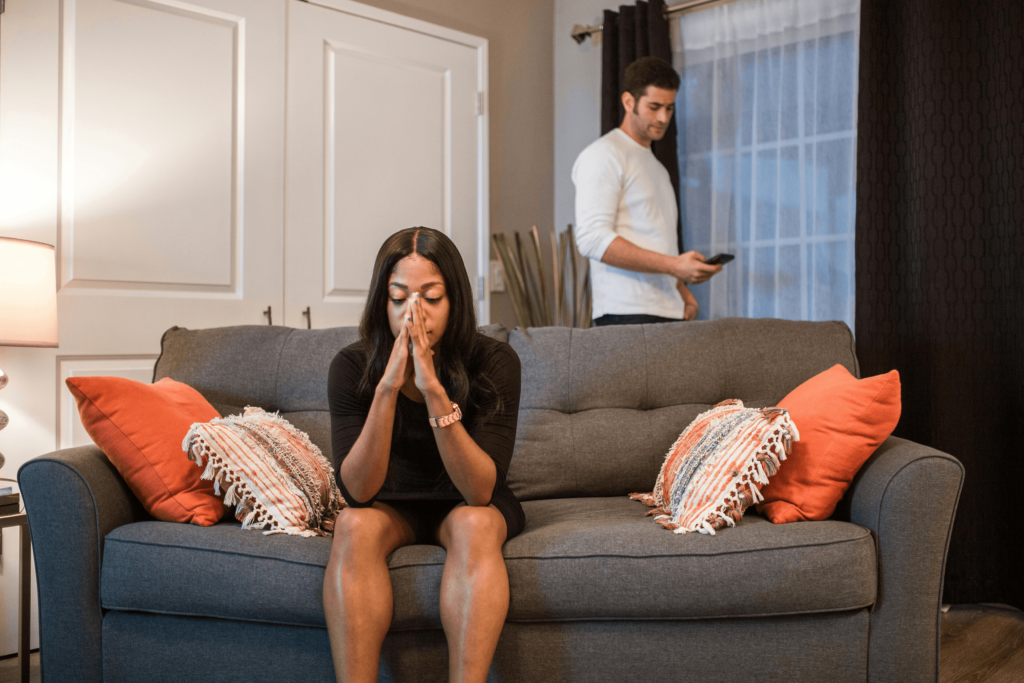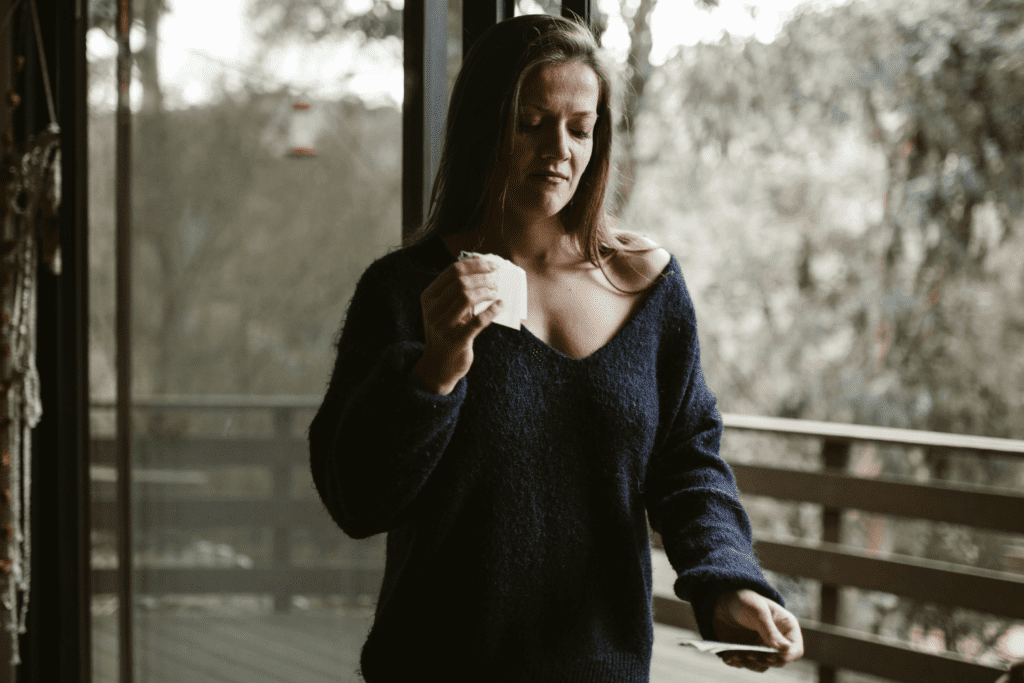Last updated on November 16th, 2024 at 02:27 am
- 1. Understanding Rebound Anxiety
- 1.1 Definition and Characteristics
- 1.2 Physiological Mechanisms
- 2. Medications Associated with Rebound Anxiety
- 2.1 Benzodiazepines
- 2.2 Other Medications
- 3. Symptoms and Duration of Rebound Anxiety
- 3.1 Common Symptoms
- 3.2 Duration and Variability
- 4. Risk Factors and Prevention
- 4.1 Identifying High-Risk Individuals
- 4.2 Preventive Strategies
- 5. Management and Treatment Approaches
- 5.1 Medical Interventions
- 5.2 Psychological Support
- 5.3 Lifestyle Modifications
- 6. Long-Term Considerations and Alternatives
- 6.1 Reassessing Treatment Plans
- 6.2 Non-Pharmacological Alternatives
- 7. The Role of Healthcare Providers
- 7.1 Importance of Collaborative Care
- 7.2 Patient Education and Empowerment
- 8. Future Directions in Anxiety Treatment
- 8.1 Emerging Therapies
- 8.2 Integrative Approaches
- 9. Rebound Anxiety and the Role of Natural Remedies
- 10. Rebound Anxiety and Lifestyle Changes
- 11. Rebound Anxiety and Sleep Hygiene
- 12. Rebound Anxiety and Cognitive Behavioral Therapy
- 13. Rebound Anxiety and Progressive Muscle Relaxation
- 14. Rebound Anxiety and Breathing Exercises
- 15. Rebound Anxiety and Support Groups
- 16. Rebound Anxiety and Medication Tapering
- 17. Rebound Anxiety and Mindfulness
- 18. Rebound Anxiety and Art and Music Therapy
- 19. Rebound Anxiety and Biofeedback and Neurofeedback
- 20. Rebound Anxiety and Herbal Supplements
- 21. Rebound Anxiety and Crisis Intervention
- 22. Rebound Anxiety and Teletherapy and Online Resources
- 23. Rebound Anxiety and Substance Use Disorder
- 24. Rebound Anxiety and Prescription Medication Misuse
- 25. Rebound Anxiety and Protracted Withdrawal
- 26. Rebound Anxiety and Animal Withdrawal Studies
- 27. Rebound Anxiety and Monoamine Oxidase Inhibitors (MAOIs)
- 28. Rebound Anxiety and Opioid Withdrawal Syndrome
- 29. Rebound Anxiety and Neonatal Withdrawal Syndrome
- 30. Rebound Anxiety and Cannabis Withdrawal Syndrome
- 31. Rebound Anxiety and Anabolic Steroid Abuse
- 32. Rebound Anxiety and Withdrawal Reactions in Mental Disorders
- Conclusion
- Frequently Asked Questions
- What Are The Most Common Withdrawal Symptoms Of Benzodiazepines?
- How Does Rebound Anxiety Differ From General Withdrawal Symptoms?
- Can Long-Term Use Of Benzodiazepines Lead To Physical Dependence?
- What Are Effective Coping Strategies For Rebound Anxiety?
- How Does Rebound Anxiety Compare To Rebound Insomnia?
- How Long Does Rebound Anxiety Typically Last After Benzodiazepine Withdrawal?
- What Are The Best Strategies To Prevent Rebound Anxiety After Medication Tapering?
- Can Cognitive Behavioral Therapy Help In Managing Rebound Anxiety?
- How Does Physical Exercise Affect Rebound Anxiety Symptoms?
- Is There A Difference Between Rebound Anxiety And Panic Attacks During Withdrawal?
- Can Abrupt Withdrawal From Antidepressants Cause Rebound Anxiety?
- How Can Mindfulness Techniques Assist In Managing Rebound Anxiety?
- Are Herbal Supplements Useful For Rebound Anxiety?
- What Role Does Sleep Hygiene Play In Preventing Rebound Anxiety?
- How Can Rebound Anxiety Be Managed After Discontinuation Of Benzodiazepines?
- Is Tapering The Medication The Only Method To Avoid Rebound Anxiety?
- Can Muscle Relaxation Techniques Help In Reducing Rebound Anxiety Symptoms?
- How Effective Is Acupuncture In Treating Rebound Anxiety?
- Can Support Groups Be Beneficial For Patients Experiencing Rebound Anxiety?
- How Can Diet Influence Rebound Anxiety Symptoms?
Anxiety is a complex and pervasive mental health condition that affects millions of people worldwide. While occasional feelings of worry or unease are normal parts of the human experience, persistent and overwhelming anxiety can significantly impact one’s quality of life. For many individuals struggling with anxiety disorders, medication becomes a crucial component of their treatment plan.
However, the journey of managing anxiety through pharmaceutical interventions is not always straightforward, and can sometimes lead to unexpected challenges.
One such challenge that has gained increasing attention in recent years is the phenomenon known as rebound anxiety. This occurrence, characterized by a resurgence of anxiety symptoms following the discontinuation of certain anti-anxiety medications, has become a growing concern for both patients and healthcare providers alike.
Understanding the intricacies of rebound anxiety, its causes, manifestations, and potential management strategies is crucial for anyone navigating the complex landscape of anxiety treatment.
1. Understanding Rebound Anxiety
Rebound anxiety is a unique and often misunderstood aspect of anxiety treatment. It represents a paradoxical increase in anxiety symptoms that can occur when a person abruptly stops taking certain anti-anxiety medications, particularly those belonging to the benzodiazepine class.
1.1 Definition and Characteristics
Rebound anxiety is characterized by the sudden reemergence or intensification of anxiety symptoms following the discontinuation of anti-anxiety medication. These symptoms often appear more severe than the individual’s baseline anxiety levels prior to starting medication. The experience can be particularly distressing, as it may lead individuals to question the effectiveness of their treatment or fear a permanent worsening of their condition.
1.2 Physiological Mechanisms
The occurrence of rebound anxiety is closely tied to the way certain medications interact with the brain’s neurotransmitter systems. Benzodiazepines, for instance, work by enhancing the effects of gamma-aminobutyric acid (GABA), a neurotransmitter that helps regulate anxiety and stress responses. When these medications are suddenly removed, the brain may struggle to readjust its neurotransmitter balance, leading to an amplification of anxiety symptoms.
2. Medications Associated with Rebound Anxiety
While rebound anxiety can potentially occur with various types of anti-anxiety medications, it is most commonly associated with specific classes of drugs.
2.1 Benzodiazepines
Benzodiazepines are among the most frequently prescribed medications for anxiety disorders. They are known for their rapid onset of action and effectiveness in providing short-term relief from anxiety symptoms. However, these same properties that make benzodiazepines effective also contribute to their potential for causing rebound anxiety. Some commonly prescribed benzodiazepines include:
- Alprazolam
- Lorazepam
- Clonazepam
- Diazepam
2.2 Other Medications
While less common, rebound anxiety can also occur with other types of anxiety medications, including:
- Selective Serotonin Reuptake Inhibitors (SSRIs)
- Serotonin-Norepinephrine Reuptake Inhibitors (SNRIs)
- Beta-blockers
The likelihood and severity of rebound anxiety can vary depending on factors such as the specific medication, dosage, duration of use, and individual patient characteristics.




3. Symptoms and Duration of Rebound Anxiety
Recognizing the symptoms of rebound anxiety is crucial for both patients and healthcare providers to ensure appropriate management and support.
3.1 Common Symptoms
Rebound anxiety symptoms can manifest in various ways, often mirroring or intensifying the original anxiety symptoms. Common manifestations include:
- Increased heart rate and palpitations
- Excessive sweating
- Trembling or shaking
- Shortness of breath
- Heightened sense of worry or fear
- Difficulty concentrating
- Insomnia or sleep disturbances
- Gastrointestinal discomfort
3.2 Duration and Variability
The duration of rebound anxiety can vary significantly from person to person. Some individuals may experience symptoms for a few days, while others may have prolonged episodes lasting several weeks. Factors influencing the duration include:
- The type of medication discontinued
- The length of time the medication was used
- The method of discontinuation (abrupt vs. gradual)
- Individual physiology and psychology
It’s important to note that the experience of rebound anxiety is highly individualized, and not everyone who discontinues anti-anxiety medication will experience this phenomenon.
4. Risk Factors and Prevention
Understanding the risk factors associated with rebound anxiety can help in developing strategies to prevent or minimize its occurrence.
4.1 Identifying High-Risk Individuals
Certain factors may increase an individual’s susceptibility to experiencing rebound anxiety:
- History of severe anxiety or panic disorders
- Prolonged use of high-dose benzodiazepines
- Previous episodes of withdrawal symptoms
- Concurrent use of multiple psychoactive substances
- Underlying medical conditions affecting drug metabolism
4.2 Preventive Strategies
To reduce the risk of rebound anxiety, healthcare providers and patients can implement several preventive measures:
- Gradual tapering of medication under medical supervision
- Implementing alternative anxiety management techniques before discontinuation
- Regular monitoring and adjustment of treatment plans
- Patient education on potential withdrawal effects and coping strategies
- Consideration of long-acting benzodiazepines for easier tapering
5. Management and Treatment Approaches
When rebound anxiety occurs, a multifaceted approach to management is often necessary to address both the acute symptoms and the underlying anxiety disorder.
5.1 Medical Interventions
Healthcare providers may employ various medical strategies to manage rebound anxiety:
- Reintroduction of the original medication at a lower dose
- Switching to a longer-acting benzodiazepine for easier tapering
- Prescribing adjunct medications to manage specific symptoms
- Implementing a more gradual tapering schedule
5.2 Psychological Support
Psychological interventions play a crucial role in managing rebound anxiety and supporting long-term anxiety management:
- Cognitive-behavioral therapy (CBT) to address anxiety patterns
- Mindfulness and relaxation techniques
- Exposure therapy for specific phobias or anxiety triggers
- Support groups and peer counseling


5.3 Lifestyle Modifications
Incorporating lifestyle changes can significantly impact the management of both rebound anxiety and underlying anxiety disorders:
- Regular exercise and physical activity
- Balanced nutrition and hydration
- Improved sleep hygiene
- Stress reduction techniques
- Limiting caffeine and alcohol consumption
6. Long-Term Considerations and Alternatives
Addressing rebound anxiety often prompts a reevaluation of long-term anxiety management strategies and treatment approaches.
6.1 Reassessing Treatment Plans
Experiencing rebound anxiety may necessitate a comprehensive review of the individual’s overall treatment plan:
- Exploring alternative medication options with lower risk of dependence
- Integrating non-pharmacological interventions more prominently
- Addressing any underlying issues contributing to anxiety
- Setting realistic expectations for long-term anxiety management
6.2 Non-Pharmacological Alternatives
Many individuals find success in managing anxiety through non-pharmacological methods, either as alternatives or complements to medication:
- Regular psychotherapy sessions
- Mindfulness-based stress reduction programs
- Biofeedback and neurofeedback techniques
- Acupuncture and other alternative therapies
- Lifestyle changes focused on overall well-being
7. The Role of Healthcare Providers
Healthcare providers play a pivotal role in the prevention, identification, and management of rebound anxiety.
7.1 Importance of Collaborative Care
Effective management of rebound anxiety often requires a collaborative approach involving various healthcare professionals:
- Primary care physicians for overall health management
- Psychiatrists for medication management and adjustment
- Psychologists or therapists for psychological support
- Specialized addiction specialists when needed


7.2 Patient Education and Empowerment
Empowering patients with knowledge and skills is crucial for successful anxiety management:
- Providing comprehensive information about medications and potential side effects
- Teaching self-monitoring techniques for anxiety symptoms
- Encouraging active participation in treatment decisions
- Offering resources for ongoing support and education
8. Future Directions in Anxiety Treatment
As our understanding of anxiety disorders and their treatment evolves, new approaches and technologies are emerging to address challenges like rebound anxiety.
8.1 Emerging Therapies
Ongoing research is exploring innovative treatments for anxiety disorders:
- Novel pharmacological agents with reduced risk of dependence
- Personalized medicine approaches based on genetic profiles
- Advanced neuroimaging techniques for targeted interventions
- Virtual reality-based exposure therapies
8.2 Integrative Approaches
The future of anxiety treatment likely lies in more integrative, holistic approaches:
- Combining traditional therapies with complementary medicine
- Incorporating technology for real-time symptom monitoring and intervention
- Addressing anxiety within the broader context of overall mental and physical health
- Emphasizing preventive strategies and early intervention
9. Rebound Anxiety and the Role of Natural Remedies
Natural remedies can be useful adjuncts in managing symptoms of withdrawal and aiding the rebound of anxiety. Herbal supplements, such as chamomile and valerian root, are often used as part of the rebound anxiety treatment due to their calming effects.
Aromatherapy, incorporating essential oils like lavender, may also be helpful for some individuals by promoting relaxation and reducing anxiety rebound. National Center for Complementary and Integrative Health has extensive research on such alternative remedies.
10. Rebound Anxiety and Lifestyle Changes
Lifestyle modifications are crucial for long-term anxiety management, especially after benzodiazepine treatment. Exercise, for instance, can mitigate withdrawal symptoms, including muscle stiffness and rapid breathing, by promoting the production of endorphins.
Diet also plays an essential role in managing rebound anxiety after benzodiazepines. A balanced diet rich in omega-3 fatty acids may alleviate rebound symptoms such as mood swings and joint pain.
11. Rebound Anxiety and Sleep Hygiene
Proper sleep hygiene can significantly affect the severity of withdrawal symptoms during the discontinuation of treatment. Rebound anxiety and insomnia often go hand in hand, especially after abrupt drug discontinuation.
Establishing a consistent sleep schedule, avoiding caffeine, and creating a relaxing bedtime routine can help alleviate sleep disturbances. Sleep Foundation offers practical sleep hygiene strategies specifically for individuals facing sleep disruptions related to anxiety.


12. Rebound Anxiety and Cognitive Behavioral Therapy
Cognitive Behavioral Therapy (CBT) is an effective non-pharmacological intervention for managing rebound anxiety and panic attacks. It is particularly beneficial for patients with panic disorder who face psychological symptoms after abrupt cessation of benzodiazepines.
CBT provides individuals with coping mechanisms for anxiety rebound, helping them challenge irrational thoughts and build healthier responses to stressors. American Psychological Association highlights the importance of CBT in treating generalized anxiety disorder and other mental health disorders.
13. Rebound Anxiety and Progressive Muscle Relaxation
Progressive muscle relaxation (PMR) is another useful approach to manage physical symptoms associated with rebound anxiety after benzodiazepines. The technique involves systematically tensing and releasing various muscle groups, which can reduce muscle stiffness and muscle pain during the rebound anxiety period.
PMR also aids in reducing acute withdrawal symptoms, including muscle twitches and abdominal pain. Practicing PMR regularly can help in managing both the physical and psychological symptoms of anxiety.
14. Rebound Anxiety and Breathing Exercises
Breathing exercises are an important aspect of managing rebound anxiety and stress management. Controlled breathing can help reduce the onset of withdrawal symptoms, such as rapid breathing and shortness of breath, associated with abrupt discontinuation.
Techniques like diaphragmatic breathing can also be beneficial in managing anxiety rebound and improving overall mental health. Practicing these exercises regularly can contribute to overall relaxation and stress reduction.
15. Rebound Anxiety and Support Groups
Rebound anxiety prevention can also be strengthened through community support. Rebound anxiety and support groups offer a platform for individuals to share experiences, discuss their symptoms of withdrawal, and receive emotional support.
This form of collective interaction has shown promising results for individuals coping with protracted withdrawal and long-term benzodiazepine use. Support groups also serve as valuable resources for patients with panic disorder or substance use disorder. Anxiety and Depression Association of America provides access to numerous virtual support groups aimed at individuals facing withdrawal reactions.
16. Rebound Anxiety and Medication Tapering
Abrupt withdrawal of medications often results in severe symptoms of anxiety and rebound anxiety duration is prolonged. Therefore, tapering is critical for reducing the severity of symptoms like mood swings and paranoid ideation brain.
Gradual tapering under medical supervision minimizes physical withdrawal symptoms and aids in the effective treatment of panic disorder. The process should be tailored to the individual, taking into account the severity of withdrawal symptoms and ensuring a comfortable withdrawal period. Mayo Clinic provides detailed guidance on benzodiazepine withdrawal and tapering protocols.
17. Rebound Anxiety and Mindfulness
Mindfulness practices like meditation and yoga have been recognized as effective in managing both psychological and physical withdrawal symptoms associated with rebound anxiety. Mindfulness techniques can aid in reducing symptoms of anxiety, including muscle tension and paranoid ideation brain.
Practicing mindfulness can be particularly helpful during the withdrawal period, reducing the occurrence of rebound phenomena and helping individuals navigate the complexity of rebound anxiety vs withdrawal. Techniques like guided imagery and progressive relaxation are also beneficial.
18. Rebound Anxiety and Art and Music Therapy
Art therapy and music therapy have emerged as innovative coping strategies for managing rebound anxiety and cognitive behavioral therapy. Creative expressions, whether through painting or playing musical instruments, can help reduce psychological symptoms and provide relief from the rebound anxiety that often follows abrupt discontinuation of medication.
Art and music therapy help in processing emotions, managing physical withdrawal symptoms, and reducing the severity of symptoms in a more holistic manner. Engaging in creative activities provides an emotional outlet and can lead to positive mental health outcomes.


19. Rebound Anxiety and Biofeedback and Neurofeedback
Biofeedback and neurofeedback techniques have shown promise in helping manage post-acute withdrawal syndromes. These methods offer real-time insights into physiological processes, allowing individuals to learn how to regulate their body’s responses during withdrawal.
Neurofeedback specifically has been used to address mental disorders such as attention-deficit/hyperactivity disorder. Its application in rebound anxiety coping strategies provides a novel avenue for managing both acute and protracted withdrawal symptoms, leading to more effective anxiety management.
20. Rebound Anxiety and Herbal Supplements
Incorporating herbal supplements such as passionflower, kava, and valerian can be useful in reducing symptoms of withdrawal, especially for those undergoing long-term benzodiazepine use. These supplements may help reduce the severity of symptoms like muscle pain, mood swings, and anxious thoughts.
Herbal remedies can also aid in easing the rebound phenomena experienced during the discontinuation of prescription medication, providing a gentle support mechanism during the withdrawal period. Always consult with a healthcare provider before adding herbal supplements to avoid adverse interactions.
21. Rebound Anxiety and Crisis Intervention
In some cases, the onset of withdrawal symptoms may escalate into severe symptoms requiring crisis intervention. This is especially common with the abrupt cessation of benzodiazepines or other addictive drugs.
Crisis intervention services, including mental health hotlines and teletherapy, provide immediate support for individuals experiencing withdrawal reactions, severe anxiety, or panic attacks. These resources are particularly beneficial for individuals with a history of substance abuse and other mental health disorders. The National Alliance on Mental Illness (NAMI) offers mental health crisis support and intervention services.
22. Rebound Anxiety and Teletherapy and Online Resources
Teletherapy and online resources have become invaluable tools for those managing rebound anxiety after antidepressants. Teletherapy provides immediate access to mental health professionals, which can be crucial for individuals struggling with abrupt discontinuation symptoms.
Additionally, mobile apps designed for stress reduction and anxiety tracking can be an effective aid for individuals coping with rebound anxiety and mental health disorders. These technologies ensure that treatment strategies are accessible, promoting better long-term outcomes for those experiencing anxiety-related issues.
23. Rebound Anxiety and Substance Use Disorder
Individuals with a substance use disorder are at a higher risk of experiencing rebound anxiety and other withdrawal reactions. The presence of addictive drugs, including alcohol and prescription medication, can complicate the withdrawal period, leading to severe symptoms and protracted withdrawal.
Management of rebound anxiety in these cases often involves integrated care that addresses both the substance use disorder and the onset of withdrawal symptoms. A comprehensive approach can improve the individual’s ability to manage anxiety and maintain long-term recovery.


24. Rebound Anxiety and Prescription Medication Misuse
Misuse of prescription medication, particularly those with high abuse potentials like benzodiazepines, increases the risk of experiencing rebound anxiety after discontinuation. Individuals may experience more intense withdrawal symptoms, including physical withdrawal symptoms like muscle stiffness and psychological symptoms such as depressed mood.
Proper education and monitoring can help minimize the risk of substance abuse and reduce the severity of withdrawal symptoms. Ensuring that medications are used strictly as prescribed is essential in preventing misuse and mitigating the long-term effects of withdrawal.
25. Rebound Anxiety and Protracted Withdrawal
Protracted withdrawal is a condition in which withdrawal symptoms persist for extended periods, sometimes lasting months or even years. This phenomenon is particularly common in patients with long-term benzodiazepine use.
Physical symptoms like muscle pain, as well as psychological symptoms such as paranoid ideation brain and mood swings, can continue to affect individuals long after the abrupt discontinuation of medication. Understanding and recognizing protracted withdrawal can aid in managing the long-term impacts of rebound anxiety effectively.
26. Rebound Anxiety and Animal Withdrawal Studies
Animal withdrawal studies have provided valuable insights into the physiological mechanisms behind rebound anxiety and withdrawal symptoms. These studies have helped in understanding how abrupt cessation of certain drugs impacts neurotransmitter systems, leading to the manifestation of anxiety symptoms and other severe symptoms.
The findings from animal studies also guide the development of more effective treatment strategies for managing rebound anxiety in humans. These studies are crucial in informing best practices for safe withdrawal and long-term recovery.
27. Rebound Anxiety and Monoamine Oxidase Inhibitors (MAOIs)
Monoamine oxidase inhibitors are another class of medication that may contribute to withdrawal symptoms, including rebound anxiety. Abrupt discontinuation of MAOIs can lead to a resurgence of anxiety symptoms, as well as physical symptoms like muscle stiffness and abdominal pain.
Careful tapering and close medical supervision are crucial when discontinuing MAOIs to prevent severe withdrawal reactions. Proper guidance ensures that withdrawal effects are minimized, enhancing overall mental well-being.
28. Rebound Anxiety and Opioid Withdrawal Syndrome
Opioid withdrawal syndrome can exacerbate symptoms of rebound anxiety. Individuals undergoing opioid withdrawal often experience a mix of physical and psychological symptoms, including anxiety, muscle pain, and mood swings.
Addressing opioid withdrawal syndrome effectively often involves integrating medications and behavioral therapies that also target rebound anxiety symptoms. Substance Abuse and Mental Health Services Administration (SAMHSA) offers guidelines on managing withdrawal symptoms, including those related to opioid use.
29. Rebound Anxiety and Neonatal Withdrawal Syndrome
Neonatal withdrawal syndrome is a condition in which newborns experience withdrawal symptoms after birth, typically due to maternal substance use during pregnancy. In such cases, the newborn may display physical withdrawal symptoms like muscle stiffness and rapid breathing.
Addressing neonatal withdrawal syndrome often involves careful monitoring and supportive care, with a focus on mitigating any long-term effects on mental health and reducing the risk of future anxiety issues. Early intervention can play a key role in ensuring better health outcomes for affected newborns.


30. Rebound Anxiety and Cannabis Withdrawal Syndrome
Cannabis withdrawal syndrome may also involve rebound anxiety, particularly in individuals who have used cannabis for extended periods. Withdrawal reactions can include physical symptoms such as muscle twitches, along with psychological symptoms like increased anxiety and mood swings.
Addressing cannabis withdrawal syndrome often involves supportive therapies, relaxation techniques, and in some cases, medical intervention to ease the symptoms of withdrawal. Support from healthcare providers ensures a smoother withdrawal process and better coping mechanisms.
31. Rebound Anxiety and Anabolic Steroid Abuse
Anabolic steroid abuse can lead to severe withdrawal symptoms, including rebound anxiety. Abrupt discontinuation of anabolic steroids often results in both physical and psychological symptoms, such as muscle pain and depressed mood.
A gradual tapering approach, combined with psychological support, can be effective in reducing the severity of withdrawal symptoms and managing rebound anxiety. Engaging in therapy can also help address underlying mental health concerns related to steroid abuse.
32. Rebound Anxiety and Withdrawal Reactions in Mental Disorders
Withdrawal reactions can be more pronounced in individuals with pre-existing mental disorders. Conditions such as generalized anxiety disorder or attention-deficit/hyperactivity disorder may exacerbate the severity of withdrawal symptoms.
Integrated care approaches are often necessary to address both the underlying mental disorder and the withdrawal symptoms. This dual approach helps individuals achieve better long-term outcomes in their anxiety management.
Conclusion
Rebound anxiety represents a significant challenge in the treatment of anxiety disorders, highlighting the complex interplay between medication, brain chemistry, and psychological factors. By understanding the mechanisms, risk factors, and management strategies associated with rebound anxiety, both healthcare providers and patients can be better equipped to navigate the challenges of anxiety treatment.
As research continues to advance our understanding of anxiety disorders and their management, the hope is that more effective, personalized, and sustainable approaches to anxiety treatment will emerge, ultimately improving the lives of millions affected by these conditions.
Frequently Asked Questions
What Are The Most Common Withdrawal Symptoms Of Benzodiazepines?
The most common withdrawal symptoms of benzodiazepines include anxiety, muscle stiffness, rapid breathing, and mood swings. These symptoms occur because of the body’s physical dependence on the medication.
Benzodiazepine withdrawal can also involve psychological symptoms such as panic attacks and paranoid ideation. According to Mayo Clinic, other symptoms may include nausea, joint pain, and abdominal discomfort.
How Does Rebound Anxiety Differ From General Withdrawal Symptoms?
Rebound anxiety is the return of anxiety symptoms, often more intensely, after discontinuing anti-anxiety medication. It differs from general withdrawal symptoms as it specifically involves the resurgence of the original anxiety symptoms rather than physical effects like muscle pain or nausea.
Rebound anxiety can be particularly distressing, making it difficult for individuals to distinguish between anxiety rebound and withdrawal. The American Psychiatric Association notes that management of rebound anxiety requires tailored interventions distinct from general withdrawal treatment.
Can Long-Term Use Of Benzodiazepines Lead To Physical Dependence?
Yes, long-term use of benzodiazepines often leads to physical dependence, which makes discontinuation challenging due to the onset of withdrawal symptoms. Physical symptoms such as muscle stiffness and rapid breathing may appear during withdrawal.
The development of dependence usually happens after using the medication for extended periods. According to Harvard Health, long-term users often face both physical and psychological withdrawal symptoms, highlighting the risks associated with extended benzodiazepine treatment.


What Are Effective Coping Strategies For Rebound Anxiety?
Effective coping strategies for rebound anxiety include practicing mindfulness, engaging in regular physical activity, and maintaining a consistent sleep schedule. Rebound anxiety often follows abrupt cessation of medication, and learning relaxation techniques such as progressive muscle relaxation can mitigate its intensity.
Additionally, studies from Johns Hopkins Medicine suggest that cognitive-behavioral therapy (CBT) can be particularly helpful in addressing the anxiety rebound. It also helps in preventing long-term relapse.
How Does Rebound Anxiety Compare To Rebound Insomnia?
Rebound anxiety and rebound insomnia both represent a resurgence of symptoms following discontinuation of medications, but they differ in their focus. Rebound anxiety pertains to heightened anxiety levels, while rebound insomnia involves the inability to sleep or worsening sleep quality.
These two conditions often occur together since anxiety can exacerbate sleep problems. According to Cleveland Clinic, treating both issues might require a combined approach of tapering medication gradually and adopting lifestyle changes, like establishing a relaxing bedtime routine.
How Long Does Rebound Anxiety Typically Last After Benzodiazepine Withdrawal?
Rebound anxiety duration can vary greatly, typically lasting from a few days to several weeks, depending on the individual’s history of drug use and overall health. Those who have been on long-term benzodiazepine treatment may experience more extended rebound symptoms.
The rebound period also depends on whether the withdrawal was abrupt or gradual. According to National Institute on Drug Abuse, individuals who gradually taper off the medication experience shorter and less severe rebound anxiety episodes compared to those who abruptly discontinue the drug.
What Are The Best Strategies To Prevent Rebound Anxiety After Medication Tapering?
The best strategies to prevent rebound anxiety after medication tapering involve a slow and controlled reduction of the dosage, combined with supportive therapies like CBT. Tapering helps in reducing the severity of withdrawal symptoms and allows the brain time to adjust to lower levels of medication.
According to WebMD, supplementing this approach with lifestyle modifications such as physical exercise, proper sleep hygiene, and stress management techniques can significantly reduce the likelihood of experiencing rebound anxiety.


Can Cognitive Behavioral Therapy Help In Managing Rebound Anxiety?
Cognitive Behavioral Therapy (CBT) is highly effective in managing rebound anxiety, especially following the discontinuation of benzodiazepines or other anxiolytics. CBT works by helping individuals reframe their anxious thoughts, which is crucial during the period of heightened anxiety that follows medication withdrawal.
As per American Psychological Association, CBT, when used in combination with medication tapering, can help patients achieve longer-term relief from anxiety symptoms. It thereby decreases the severity of rebound phenomena.
How Does Physical Exercise Affect Rebound Anxiety Symptoms?
Physical exercise plays a critical role in alleviating rebound anxiety symptoms by naturally boosting mood and reducing muscle stiffness. Activities like yoga and aerobics help in reducing both physical and psychological symptoms of anxiety.
According to Mayo Clinic, regular exercise stimulates the production of endorphins, which serve as natural stress relievers. This reduces the severity of rebound symptoms and helps in managing anxiety without the use of prescription medication.
Is There A Difference Between Rebound Anxiety And Panic Attacks During Withdrawal?
Yes, rebound anxiety and panic attacks during withdrawal are different, although they may co-occur. Rebound anxiety refers to a return of generalized anxiety symptoms that were initially treated with medication, whereas panic attacks are sudden, intense episodes of fear accompanied by physical symptoms like rapid breathing and chest tightness.
The National Institute of Mental Health highlights that panic attacks can be a common component of rebound anxiety, but they are not identical. Specific treatment strategies may be required to address these panic episodes.
Can Abrupt Withdrawal From Antidepressants Cause Rebound Anxiety?
Abrupt withdrawal from antidepressants, such as SSRIs, can lead to rebound anxiety characterized by increased intensity of anxiety symptoms. This often occurs due to the sudden absence of the medication’s effects on serotonin levels in the brain.
The abrupt cessation can also lead to symptoms of withdrawal, including mood swings and irritability. According to Harvard Medical School, a gradual tapering process can significantly reduce the likelihood of both withdrawal and rebound anxiety symptoms.


How Can Mindfulness Techniques Assist In Managing Rebound Anxiety?
Mindfulness techniques, such as meditation and breathing exercises, can be highly effective in managing rebound anxiety by encouraging a focus on the present moment and reducing stress. Mindfulness is particularly beneficial during withdrawal periods as it can lessen the mental and physical symptoms of anxiety, including muscle stiffness and rapid breathing.
The Mindfulness-Based Stress Reduction Institute advocates using mindfulness to help decrease the severity of symptoms. It also promotes a healthier, less anxious mindset during withdrawal.
Are Herbal Supplements Useful For Rebound Anxiety?
Herbal supplements like valerian root, chamomile, and passionflower can help alleviate rebound anxiety, especially during the tapering of anti-anxiety medication. These herbs possess calming effects that can soothe both the mind and body, helping to minimize withdrawal reactions such as muscle twitches and mood swings.
According to National Center for Complementary and Integrative Health, some individuals find these herbal remedies effective in managing symptoms without the adverse side effects commonly associated with prescription drugs.
What Role Does Sleep Hygiene Play In Preventing Rebound Anxiety?
Good sleep hygiene plays a crucial role in preventing rebound anxiety by supporting a stable mood and minimizing the risk of insomnia. Proper sleep hygiene includes maintaining a regular sleep schedule, avoiding stimulants like caffeine, and creating a relaxing bedtime environment.
According to Sleep Foundation, such practices are especially helpful in mitigating rebound symptoms that arise after the discontinuation of anxiolytic medication. Poor sleep often exacerbates anxiety.
How Can Rebound Anxiety Be Managed After Discontinuation Of Benzodiazepines?
Managing rebound anxiety after benzodiazepine discontinuation requires a combination of gradual tapering, supportive therapies, and lifestyle adjustments. The goal is to lessen the severity of anxiety symptoms while promoting physical and mental well-being.
The National Institute on Drug Abuse suggests that practices like engaging in regular exercise, seeking therapy, and adopting stress management techniques can be highly effective. These practices help in reducing rebound anxiety and ensuring successful withdrawal.
Is Tapering The Medication The Only Method To Avoid Rebound Anxiety?
While tapering medication is a primary method to avoid rebound anxiety, other interventions, such as CBT and stress management techniques, can also be beneficial. Tapering helps to minimize withdrawal symptoms, while CBT helps in addressing underlying anxious thoughts.
As stated by American Psychological Association, integrating psychotherapy along with medication reduction is often more effective than tapering alone. This approach helps in avoiding severe symptoms of anxiety rebound.
Can Muscle Relaxation Techniques Help In Reducing Rebound Anxiety Symptoms?
Yes, progressive muscle relaxation techniques can help in reducing the physical symptoms of rebound anxiety, such as muscle stiffness and rapid breathing. By focusing on tensing and then relaxing specific muscle groups, these exercises can help decrease overall physical tension and anxiety.
According to Cleveland Clinic, muscle relaxation exercises are effective in managing both the physical and psychological aspects of anxiety during withdrawal. This makes them a useful tool for managing rebound symptoms.
How Effective Is Acupuncture In Treating Rebound Anxiety?
Acupuncture has shown promise in treating rebound anxiety by stimulating specific points on the body to reduce stress and anxiety levels. The practice aims to restore balance in the body, which can help lessen both the psychological and physical withdrawal symptoms.
According to Johns Hopkins Medicine, acupuncture, when used in conjunction with conventional treatment strategies, can be an effective adjunctive therapy for managing anxiety rebound. This is especially true during benzodiazepine tapering.
Can Support Groups Be Beneficial For Patients Experiencing Rebound Anxiety?
Support groups can be highly beneficial for patients experiencing rebound anxiety by providing emotional support and shared experiences that foster a sense of community. Being part of a support group helps individuals realize that they are not alone, which can reduce feelings of isolation and anxiety.
According to National Alliance on Mental Illness, peer support has been shown to help in reducing anxiety levels. It also encourages individuals to stay on track with their treatment plan, making it an invaluable resource during the withdrawal process.
How Can Diet Influence Rebound Anxiety Symptoms?
Diet plays a significant role in managing rebound anxiety symptoms by providing nutrients that promote stable mood and brain function. Omega-3 fatty acids, magnesium, and antioxidants have been linked to reduced anxiety levels.
According to Harvard Health, a diet rich in these nutrients can help reduce symptoms such as mood swings and rapid breathing. This can make the withdrawal process more manageable. Limiting caffeine and sugar intake is also recommended to avoid exacerbating anxiety symptoms.



